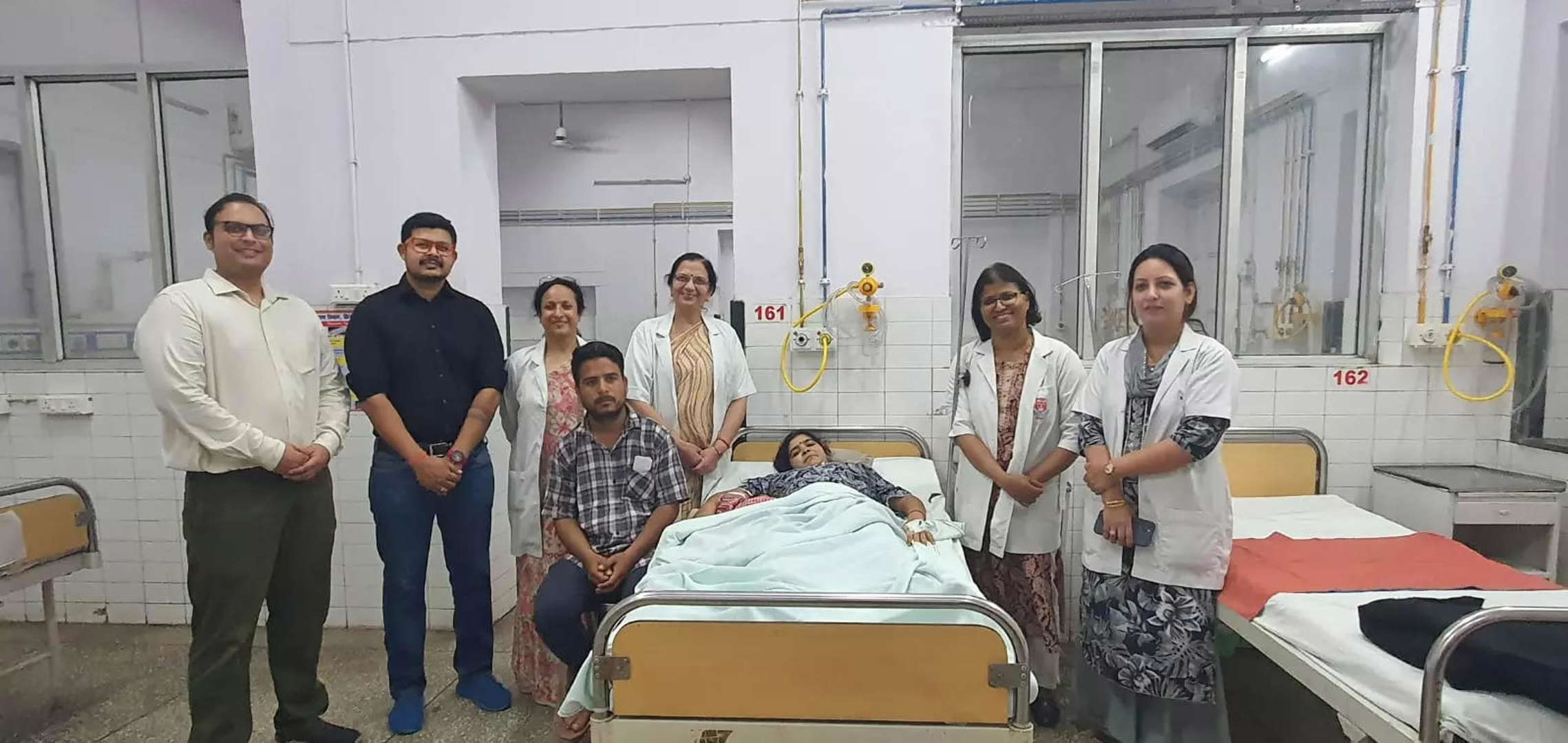In a remarkable feat of medical expertise, King George's Medical University (KGMU) has achieved a groundbreaking success by saving the lives of pregnant women battling Eisenmenger syndrome (ES). This accomplishment has solidified KGMU's position as the first government institute in India to achieve a survival rate in a condition that is known for its high mortality rate, even in the Western world.
Eisenmenger syndrome, a rare ailment affecting a small fraction of the population (occurring in three persons per 1000 adults), is characterized by irreversible damage to the pulmonary artery due to an underlying heart defect. The severity of this condition is further exacerbated during pregnancy, where survival rates are historically low. In fact, the World Health Organization (WHO) advises against pregnancy in cases of Eisenmenger syndrome due to the associated risks.
The remarkable story centers around a 26-year-old woman named Nilima from Gorakhpur, who arrived at KGMU during the final trimester of her pregnancy, experiencing alarming breathing difficulties and palpitations. A diagnosis revealed that she was suffering from Tetralogy of Fallot, a complex combination of four congenital heart defects. These defects hinder the delivery of oxygen-rich blood to the body, resulting in her heart functioning at a mere 25%. This condition often leads to Eisenmenger syndrome.
Under the guidance of Prof SP Jaiswar, an adept team from the Anesthesia and Critical Care Department and the Obstetric Department took swift action. Dr Shashank Kanaujia led a high-risk anesthesia procedure, utilizing a specialized technique developed with insights from head anesthesia Prof GP Singh and other experts. The surgical team, led by Prof Anjoo Agrawal and Dr Mona Bajaj, skillfully performed a successful cesarean section, ensuring the survival of both the mother and her baby. The Trauma Ventilatory Unit (TVU), overseen by Dr Zia Arshad, Dr Ravi Prakash, and Dr Rati Prabha, contributed significantly to their recovery. As a result of the combined efforts, Nilima and her baby were discharged from the hospital with renewed hope.
The Anesthesia and Critical Care Department, led by Prof GP Singh, has achieved an impressive feat of three consecutive patient survivals in the past two years, setting an international standard. The innovative technique employed in these cases, pioneered by cardiac anesthetist Dr Karan Kaushik and his team, played a pivotal role in these successes. Dr. Karan explains that the technique involves administering anesthesia directly into the heart through specialized catheters inserted in primary veins. Additionally, high doses of drugs are strategically used to maintain blood pressure during surgery, counteracting the effects of anesthesia.
Prof GP Singh is on the verge of unveiling the intricacies of this technique, offering a ray of hope to patients facing this challenging condition. He believes that KGMU's achievement speaks volumes about the medical proficiency and dedication of its staff, as they continue to push boundaries and rewrite the narrative of Eisenmenger syndrome. KGMU's Vice Chancellor, Prof Soniya Nityanand, expressed her congratulations to the entire team for their extraordinary success.

 Eisenmenger syndrome, a rare ailment affecting a small fraction of the population (occurring in three persons per 1000 adults), is characterized by irreversible damage to the pulmonary artery due to an underlying heart defect.
Eisenmenger syndrome, a rare ailment affecting a small fraction of the population (occurring in three persons per 1000 adults), is characterized by irreversible damage to the pulmonary artery due to an underlying heart defect.










.jpeg)







.jpeg)

.jpg)










